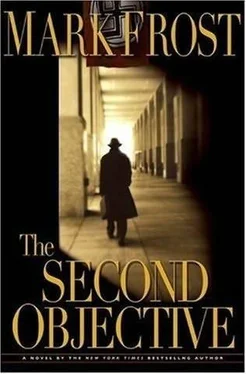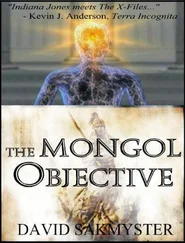“No. And I never asked. Nor, in putting this document together, and this is a little awkward, could I find any mention of your service record. No entry or discharge. Nothing with the Veterans Administration.” He let that sink in for a moment, then turned to a legal pad. “I did verify that your family lived in Park Slope, as you say. Then it appears you moved away for some time in ’38? Eight years later you’re back in the area. Alone. Living in a one-room apartment. Unmarried. No trace of your family.”
Meyer appeared to be waiting for an explanation, but when none was forthcoming he showed no disappointment.
“The fact is Earl Grannit vouched for you,” said Meyer. “And that is as far as my curiosity extends. I require your signature here, and here.”
Meyer set two copies of the will down in front of him and handed Bernie a pen.
“I owe him my life,” said Bernie, about to elaborate.
“Please, feel no obligation to say anything more. Earl obviously had his reasons as well.”
Bernie signed the documents. Meyer efficiently gathered them from him and showed him to the door.
“Anyway, one hopes that’s what we’ve learned about what happened over there, isn’t it?” he said. “In those black hours.”
As Meyer looked at him over his glasses, behind the easy congeniality, Bernie wondered exactly how much he did know.
“What’s that, sir?”
“What we were fighting for. And against.”
“Yes, sir.”
“Not every hero came home with a medal.”
They shook hands, and Bernie stepped out onto the quiet tree-lined street, a chill in the wind, the leaves just starting to turn, and walked all the way back to Park Slope.
On May 19, 1945, near Salzburg, Austria, where he had led his commandos into the Alps to mount a final defense, Oberstürmbannführer Otto Skorzeny turned himself in to American forces. News of the surrender of “the most dangerous man in Europe” created a sensation throughout the Continent, America, and the rest of the world. When General Eisenhower learned of Skorzeny’s capture, he sent his personal chief of security to interview him and ordered a film crew from Army Counter Intelligence to record the interrogation. Eisenhower reviewed the resulting footage personally, but his reaction was never made public. Skorzeny would spend the next two years in prisoner-of-war camps at Nuremberg and later at Dachau, awaiting trial in the Allies’ war crimes court. Although he was universally described in newspaper accounts as “the man who tried to kill Eisenhower,” Skorzeny skillfully defused the accusation through the English-speaking press. Charming and formidable, easily the most charismatic of the surviving Nazi hierarchy, in dozens of interviews he claimed that he had never seriously intended to assassinate the Allied commander, adding, with a sly smile, that if he had, “no one would have been left in doubt about what I was trying to do.”
Despite working steadily for the next two years, Allied officials were unable to produce any written orders or compelling eyewitnesses who would testify to Skorzeny’s direct involvement in the plot to kill Eisenhower. Skorzeny had received his orders directly from Hitler, and had made certain that no paper trail survived. The only other men with direct knowledge of the Second Objective had all been killed in combat or shot by American firing squads. Only the interrogation of the unfortunate Karl Heinz Schmidt and a few others testified to its existence, and those files would remain classified by Army Counter Intelligence for the next fifty years. The reason for that had something to do with the fact that, while in custody, after weeks of fruitless interrogations about Operation Greif by Allied interrogators, Skorzeny was visited by the legendary Bill Donovan, head of the Office of Strategic Services, forerunner of the CIA, and Skorzeny’s opposite number on the American side. Donovan recognized a kindred spirit in Skorzeny, and although no record of their discussions remain, they were apparently amiable and far-reaching. What they shared in earnest, besides an appetite for spy craft, was a serious dread of the Soviet Union and its emerging designs on Eastern Europe. Shortly after their encounter, all pursuit of charges against Skorzeny in the Eisenhower assassination attempt was dropped. For a while, frustrated prosecutors considered including Skorzeny with the dozens of soldiers and officers responsible for the massacre of American troops near Malmédy, but the idea was dismissed for an obvious lack of evidence.
Skorzeny was finally brought to trial before a military tribunal in 1947 on a lesser charge that his deployment of German commandos disguised as Allied soldiers during the Ardennes offensive constituted a war crime. Press from around the world gathered to cover the proceedings. With the help of a tenacious American defense attorney, Lieutenant Colonel Robert Durst, Skorzeny argued that every side in the war had at one time or another employed the exact same tactic. If his actions were considered a war crime, any similar Allied effort would have to be held to the same criminal standard. At the eleventh hour, Skorzeny’s attorney called a surprise defense witness to the stand, a decorated British RAF war hero who testified that he and his commando unit had worn German uniforms on a number of missions during the war. The tribunal acquitted Otto Skorzeny of all charges. Afterward, the thwarted and furious chief prosecutor told the press: “I still think Skorzeny is the most dangerous man in Europe.”
Although technically free, Skorzeny remained in American custody while they debated what to do with him. Attempts by the Soviets and the Czechs to extradite him for war crimes in their own tribunals, where he faced certain execution, clouded the issue. While those efforts were tied up in the courts, he was finally transferred to a German detention camp in early 1948. A few months later, with help from agents of the recently formed Central Intelligence Agency, three former SS officers arrived at the camp disguised as American military policemen and presented forged documents that authorized them to transport Skorzeny to a hearing at Nuremberg the following day. The American soldiers on duty signed the release, and Skorzeny walked out of the prison in the custody of the disguised MPs. He promptly disappeared. When his absence was discovered and his cell searched later that day, officials found a letter Skorzeny had left behind, addressed to the German court, explaining his actions:
After the capitulation of the German Army, Mr. Chairman, I, as a soldier, which is all that I was, freely gave myself up with a trust in the justice of the victors without making any effort to avoid my responsibility. For over two years I tried to clear myself and restore the honor of my name to the world. The American military tribunal in Dachau cleared me of all charges and therewith declared to the public that I had acted and fought purely as a decent soldier and had only done my duty to my Fatherland. In spite of this official release I was kept under arrest. The American authorities offered me the choice to go to either a DP camp or a German internment camp. I chose the latter in the hope of finding only justice before a German court and have prepared myself for months for these proceedings. However, I will not allow myself to fall under a one-sided, outside influenced decision and thus lose the honor which was restored to me by the American court. For these reasons I have withdrawn myself from further German court proceedings. If I’m given an opportunity to come before a German court which stands only under the law and is strong enough to resist the hatred exerted from outside sources as is worthy of German justice traditions, I will immediately place myself at your service. As a German who fought for his country, as did every German man, I have only one wish: to live in honor in my Fatherland.
Читать дальше












